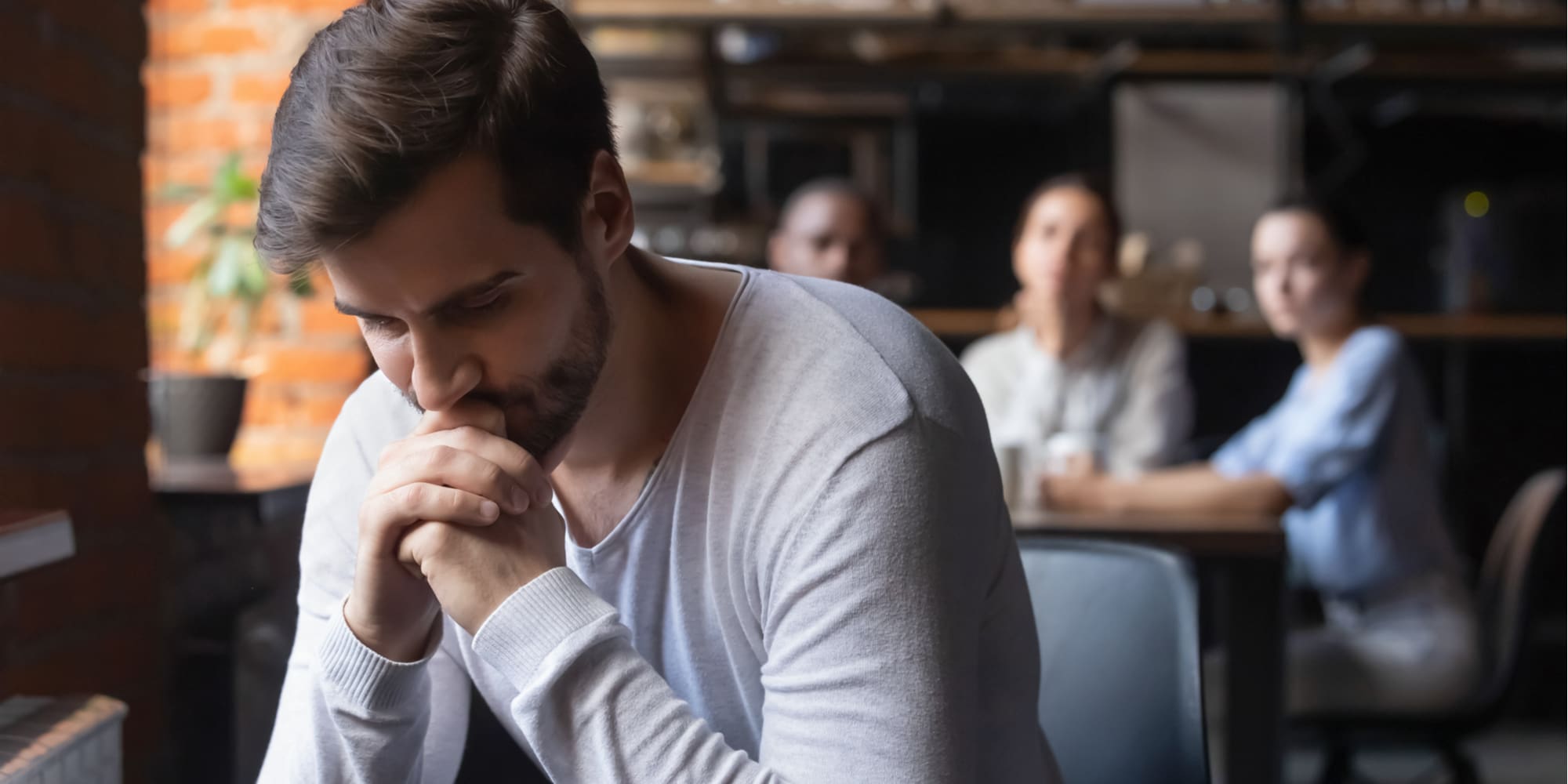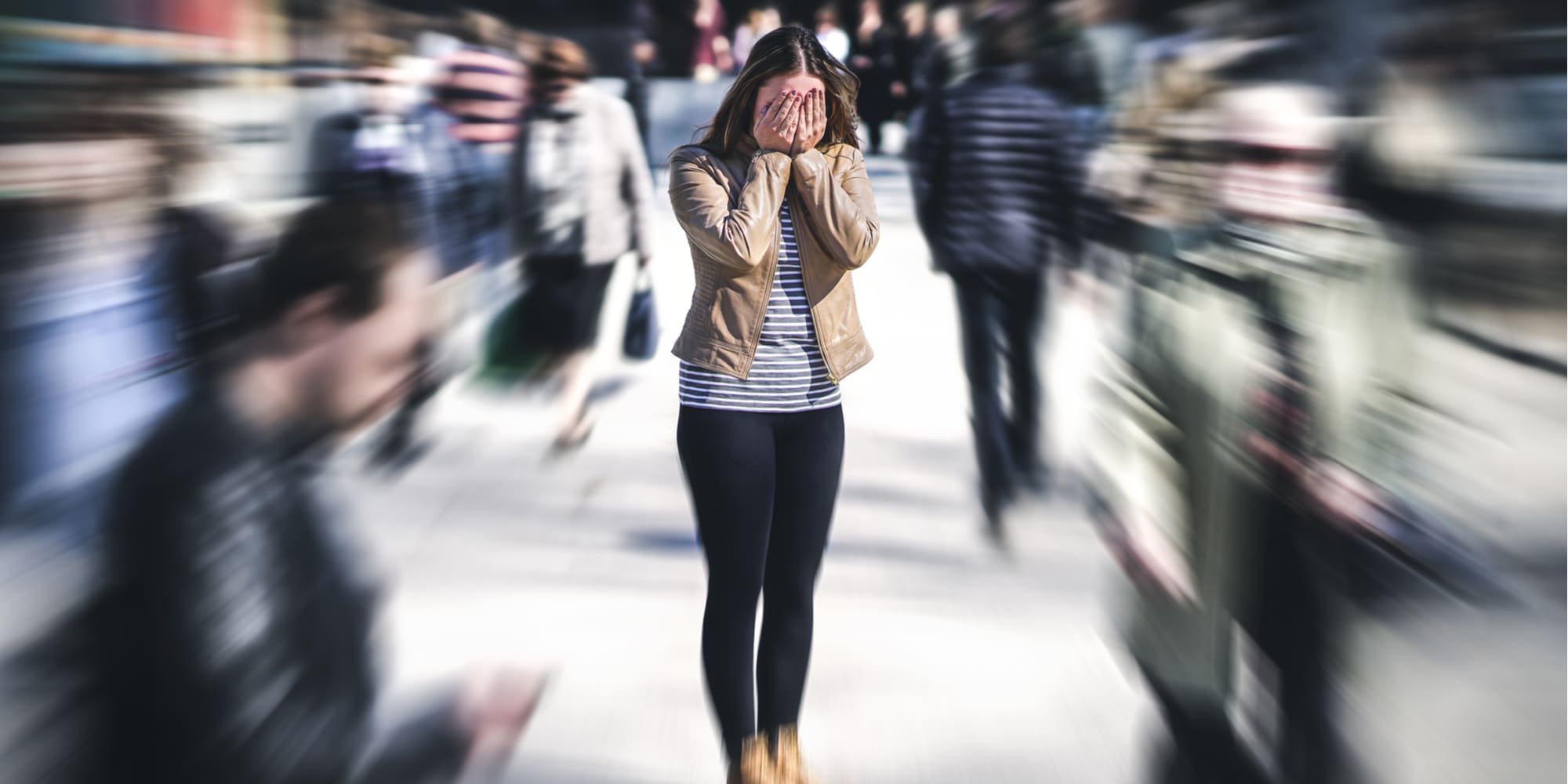Phobias are incredibly common, but they are often misunderstood as simple fears. The truth is that having phobias is a type of anxiety disorder that can severely impact your everyday life.
If you struggle with phobias, know that you don’t always have to live in intense fear. Learn more about phobias below to learn how you can get treatment for this specific type of anxiety disorder.

Simply put, having a phobia of something means that you are afraid of it, even if it is nothing that will bring true harm. Phobias are “unreasonable” or “irrational” because your body responds to them as though you are in great danger when you are not.
As stated above, having phobias is a type anxiety disorder. Phobias are usually related to a specific object or situation, and the feelings associated with the phobias do not go away easily. Instead, the symptoms of the phobias can be long-lasting and reoccurring. This makes phobias differ from anxiety, which typically causes general unease and discomfort for a brief time.
According to the National Institute of Mental Health, approximately nine percent of adults in the United States experience phobias. Some people do not feel greatly impacted by their phobias, while others have trouble doing typical activities, such as using public transport or leaving the house.
There are a number of reasons that cause people to have phobias, including genetics. Mental illnesses like anxiety and phobias can be passed down from one family member to the next. Genetics aren’t the only factor in developing phobias, though. For many people, phobias stem from traumatic experiences, medical issues, other mental illnesses, and substance use disorders.
All of these elements can make it challenging to cope with a phobia once it develops. Even if you remind yourself that there’s nothing to be afraid of, phobias cause an uncontrollable, intense fear within you. Often times, this inability to control the fear is what makes the symptoms of having phobias so challenging.
There are three major types of phobias that many people struggle with. We break them down for you below so you can understand what kind of phobia you might be experiencing.
Specific phobias, also known as simple phobias, are phobias that relate to a particular object or situation. In these scenarios, specific objects or situations can cause fear and anxiety that is incredibly challenging to deal with.
A few examples of common specific phobias include a fear of:
Social phobias are different from simple phobias in that this fear relates to being in social situations. The term “social phobias” is also known as social anxiety disorder. Often times, people with social phobias or social anxiety disorder avoid social situations because of the anticipatory anxiety that comes alongside being in public and interacting with others.
Social situations that are extremely challenging for those with social phobias include:
People with social phobias often fear that they will embarrass themselves in front of others. This fear of embarrassment or fear of being noticed is so extreme that it often leads to people to avoid all social situations, resulting in loneliness and worsened symptoms of mental illnesses like depression and substance use disorders.
Agoraphobia is similar to social phobias, but the fear stems from being stuck or trapped in unfamiliar, open places. To people with agoraphobia, home is often the only safe place they can trust. The intense fear of being outside of their home often makes people with agoraphobia feel that they cannot go to public places.
Going to the mall, movie theaters, and using public transport are all common scenarios that would cause somebody with agoraphobia to experience phobia symptoms, such as intense fear and anxiety.

Phobias usually cause physical and emotional symptoms. While these symptoms aren’t necessary life-threatening, they can be very disruptive to your daily routines and lifestyle. Additionally, severe phobia symptoms can cause both physical and mental health complications.
Some common symptoms of having phobias include:
Understandably, people who have phobias often avoid anything that brings them in close contact with the object or situation that triggers the feeling of panic. For example, if you are afraid of heights, you will probably try to avoid tall buildings, flying in airplanes, or even climbing a ladder.
Substance abuse is closely linked with phobias and anxiety disorders because using drugs or alcohol can sometimes make you feel more relaxed or less fearful of specific objects or situations. This is another avoidance tactic and one that often has serious consequences to your physical and mental health.
The reality is that avoiding the phobia doesn’t make it go away. Avoidance can negatively impact your social life, career, and overall well-being. Therefore, finding the right treatment for your experiences with phobias can help you to develop the skills you need to cope with the feelings of intense fear so that you can continue with your life without this interference.
Even though the symptoms of phobias can be intense, treatment is possible. The best treatment options for phobias involve different types of therapies and will depend on your experiences with phobias.
If you are seeking treatment for phobias alongside other mental illnesses or substance abuse disorder, consider the following medically reviewed, effective therapies:
Regardless of the type of therapy you do, a mental health professional will guide you to understanding about your phobias as well as help you build the skills you need to cope with the daily fear of this object or situation.
At Port St. Lucie Hospital, we understand how exhausting it can be to live in fear when you are dealing with phobias. If you struggle with phobias, related mental illnesses, and/or substance abuse, we have the treatment you need.
To learn more about our services, please reach out to us at (772) 335-0400 or fill out our confidential contact form online. We are here to help you live fearlessly, healthily, and happily.























